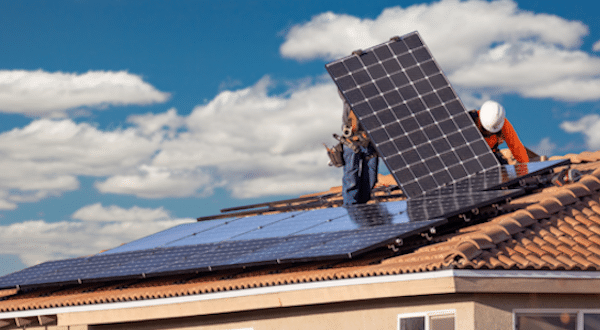
Roof Solar Panel Alternatives
You’d like to “go green” but solar panels won’t work for your roof. Maybe your house has too much shade or it’s not structurally suited for solar panels. Perhaps you have a homeowner’s association that doesn’t allow it. What do you do? You look at some eco-friendly alternatives.
Why solar power?
Solar power takes energy from the sun’s UV rays and converts it into power that we can use for electricity and heat. It is a clean energy, which means it does not create damage to the environment. It’s also renewable, which means you don’t use it up. Using solar power can help you save on your electric bill and reduce your reliance on the electric grid. It also may increase the value of your home.
When you install a solar system, you also may qualify for federal tax breaks or incentives. Many states, counties, municipalities, and utilities offer credits as well. You can find more information at the Database of State Incentives for Renewables & Efficiency.
While solar panels on roofs are very popular, not all roofs can accommodate them. Plus, when you have roof solar panels, it’s harder to keep up on roof repairs and maintenance. It can make roof replacement difficult. Fortunately, there are some alternatives to placing solar panels on your roof.
Ground Mounted Panels
If you have enough space on your property, you can install solar panels on the ground. This requires a framework that must be built. Ground systems have several advantages. They are easier to maintain and replace as you won’t have to go up on your roof to check the system. The system also can include rotating panels to maximize sun exposure. If you’re considering ground mounted panels, check with your local ordinances. Your town may require additional permits or environmental assessments.
Flexible Panels
As an alternative to traditional solar panels, you can find thin, flexible panels that can
be placed almost anywhere that you have sun. An advantage to using flexible panels is that they are less bulky and less visible than traditional solar panels. The downside is that they generate a lot less energy than solar panels.
Solar Roof Shingles
Solar panels also come in shingle form. Solar shingles can create a more traditional look for a roof. Like regular shingles, these protect your home from weather and other elements. You also don’t have to do the whole roof with solar shingles, depending upon your energy needs. You can integrate them with existing shingles, and they work well with concrete and asphalt roofs. However, they can be a pricey option.
Solar Siding
Solar siding is a vertical panel that you can put on the side of your house. This type of siding comes in different colors, and can even look like wood, brick or natural stone.
Solar Blinds
You can purchase solar blinds for your windows. While these won’t provide enough energy to get you off the grid, they can reduce your electrical usage. On the horizon—but not yet available—solar windows are in development, too.
Solar Sheds and Carports
You don’t have to limit solar to your roof or home. You can put solar panels on another building on your property. Solar panels on a garage could even power an electric vehicle. You can install a unit on your shed or carport that powers home appliances, electronics and lighting with batteries for storage and a generator backup.
Solar Patio Covers and Pergolas
Solar patio covers and pergolas are an increasingly popular option. They offer shade and outdoor seating areas while powering your home. They are not typically attached to your home and can be made in a range of materials with the solar panels mounted on top.
Mobile Solar
If you’re a renter, you cannot add solar panels to your roof or other structures. However, you can invest in mobile or portable solar panels. These panels don’t have to be attached to the house and won’t damage the property. They are compact and lightweight. The wattage they produce can vary from just a few watts to 300+. Mobile solar is popular for camping and RV travel. The disadvantage is that they must be set up each time you use them.
Community Solar
You also can take advantage of community solar installations. This doesn’t require you to put anything on your property. You can subscribe to community solar in exchange for utility bill credits. This can save you an average of 5-20% on annual electricity costs.
If you do install solar, let your insurer know. That way, your home insurance policy can be updated for any future claims.
This article is furnished by California Casualty, providing auto and home insurance to educators, law enforcement officers, firefighters, and nurses. Get a quote at 1.866.704.8614 or www.calcas.com.
